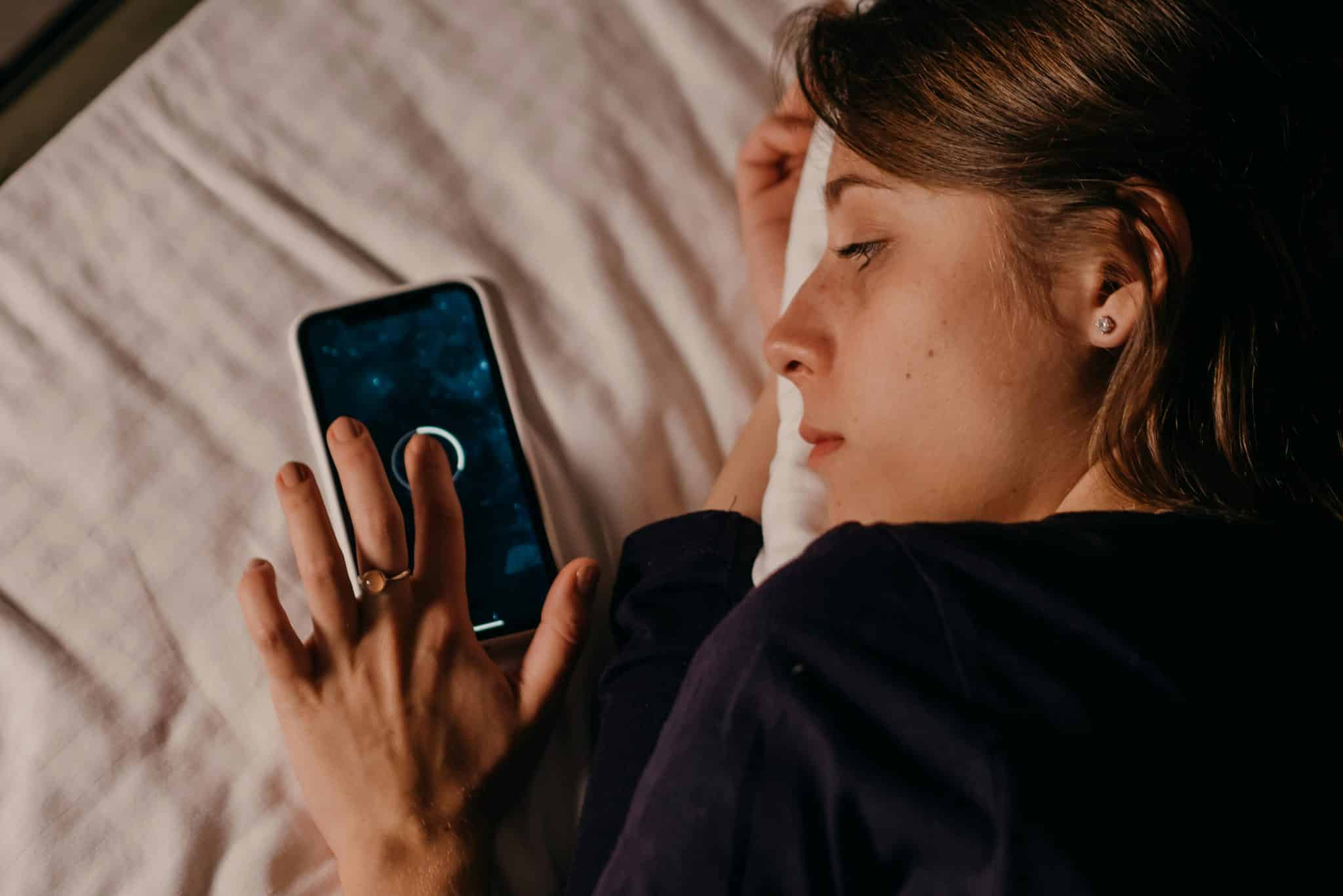Why Can’t I Put My Phone Down?

We live in a world where you can order a pizza, find a date, and pay your bills all from your phone. It’s no wonder it feels like your digital sidekick is glued to your hand. But why does it sometimes feel like you’re on a leash?
Sure, they are essential tools, providing us with important information and keeping us connected with our family and friends. But why does putting them down feel like you lost a part of yourself?
Photo by Clique Images on Unsplash
We will dive into the why’s and how’s of this smartphone spell. What makes these devices irresistibly addictive, from dopamine-inducing notifications to the endless scroll of social media?
But fear not, it’s not all doom and gloom. We’ll also arm you with practical, real-world strategies to help you put down your phone and reclaim your attention – and your life.
I. The Allure of the Smartphone
The Psychology of Attention
Welcome to the Attention Economy
Welcome to the world where your attention is the hottest commodity. It’s a battlefield, and every app on your phone is vying for your most precious resource – your focus.
In this attention economy, companies design their products to capture and hold your attention as long as possible.
Why?
Because your focus translates into profit through ads, in-app purchases, or data gathering.
The Art of Persuasive Design
It’s no accident that your phone feels irresistible. This is the result of ‘persuasive design’ – a cocktail of strategies employed by app designers to hook your attention. Apps like Facebook and YouTube are crafted to create a compelling user experience, keeping you engaged for hours on end.
From the colors they use to the way notifications are timed, every element is meticulously designed to captivate your attention.
For instance, the ‘pull-to-refresh’ feature in many social media apps is similar to a slot machine – you never know what you’ll get next, keeping you hooked for that next interesting post or like.
Dopamine: The Addiction Trigger
Here’s the science bit: every time you get a like, a comment, or even a message, your brain gets a hit of dopamine – the same feel-good hormone released when you eat your favorite food or exercise.
This dopamine release creates habit loops, a cycle of actions and rewards that train your brain to crave more screen time, leading to what we often call ‘smartphone addiction.
Your brain starts to associate your phone with pleasure, leading to habitual checking and rechecking. It’s a cycle of cue (notification), routine (checking the phone), and reward (dopamine hit), reinforcing your smartphone addiction.
Photo by William Hook on Unsplash
The Ubiquity of Apps
A World in Your Pocket
Think about the staggering number of apps available today. Each one promises to make life easier, keep you connected, or entertain you. But with great variety comes great temptation. The sheer volume of apps at our fingertips means there’s always something to check, play, or scroll through, contributing to our screen fixation.
Notification: The Constant Companion
Those pings and buzzes are not just sounds; they’re calls to action. Each notification is an invitation to engage, and it’s hard to ignore. Whether it’s an email, a social media alert, or a message, these notifications keep us tethered to our devices, often disrupting our focus and flow.
Social Media: The Connection Paradox
Social media platforms, with their endless feeds and constant updates, tap into our desire for social connection. But they also amplify our fear of missing out (FOMO). They’ve become digital magnets, drawing us in with the promise of new content and social interactions, making it increasingly challenging to put our phones down.
II. The Consequences of Screen Obsession
A. Physical Health Impacts
1. Eye and Posture Strain
Have you noticed how your eyes feel after a long day glued to the screen? It’s not just your imagination. The blue light from phones and computers can strain your eyes, leading to fatigue and discomfort. And let’s talk about posture – ever caught yourself hunched over your phone? This poor posture can cause neck and back pain.
2. Disrupted Sleep Patterns
Ever tried sleeping right after a Netflix binge or late-night Tiktok scroll? Chances are, you found it harder to drift off. Excessive screen time, especially before bed, can mess with your sleep. The blue light interferes with melatonin, the hormone that helps you sleep.
3. Sedentary Lifestyle Risks
Constant phone use often means less physical activity. Sitting for hours isn’t doing your body any favors. It can lead to a sedentary lifestyle, which is linked to various health issues like obesity and heart disease.
B. Emotional Well-being
1. Smartphone Stress
You’re not alone if you feel more stressed after a day of endless notifications. Constant smartphone use can amp up stress levels. It’s the never-ending news alerts, supposedly important emails, social media pressures, and the urge to stay connected 24/7.
2. Social Media and Mental Health
Scrolling through social media can sometimes leave you feeling down, right? It’s often a playground for comparison – everyone else’s life seems perfect compared to yours. This comparison can be damaging to your self-esteem and mental health.
3. Loneliness in a Connected World
Ironically, while smartphones are supposed to connect us, they can actually make us feel lonelier. Ever felt isolated even though you’re texting or on social media? That’s because digital interactions can’t fully replace the warmth and connection of face-to-face interactions.
There has been an increase in reported levels of chronic loneliness, with approximately 7.1% of people in the UK (3.83 million) experiencing chronic loneliness. Gen Z and millennials report feeling the highest levels of loneliness compared to older generations.
Photo by Sasha Freemind on Unsplash
Why Can’t I Put My Phone Down?
- Attention Economy: Your phone is designed to capture and keep your attention. Apps and notifications constantly vie for your focus, making it hard to put the phone down.
- Dopamine Loops: Each notification or social media triggers a small dopamine release, creating a cycle of checking and rechecking your phone.
- Habit Formation: Regular use of smartphones leads to habit loops. These habits become automatic responses, making it hard to break free.
- Fear of Missing Out (FOMO): Social media and constant connectivity feed the fear of missing out on important updates or social interactions.
- Overload of Apps: The sheer number of engaging apps available keeps you hooked, offering endless entertainment and information at your fingertips.
- Social Conditioning: There’s a societal expectation to be always available and responsive, which can make you feel obligated to continually check your phone. You become emotionally dependent on your devices.
To break the spell:
- Use tools like Freedom to manage screen time and block distractions.
- Set specific ‘phone-free’ times and zones in your daily routine.
- Engage more in real-life interactions and non-screen activities for a balanced digital life.
III. Strategies for Reducing Screen Time
A. Mindful Smartphone Use
Let’s face it, our phones are like digital Swiss Army knives. Here’s how you can use them more mindfully:
- Setting Boundaries: It’s crucial. Decide when and where you’ll use your phone. Consider doing a digital detox. Maybe no phones at the dinner table or during family time?
- Phone-Free Zones and Times: Designate areas in your home as phone-free zones. Maybe your bedroom? This encourages better sleep and more personal interactions.
- Breaking the Habit Loop: Use mindfulness techniques like meditation to resist the urge to constantly check your phone. Remember, every time you resist the urge, you’re strengthening your focus muscles.
B. Rediscovering Life Beyond the Screen
Your phone shouldn’t be your only source of entertainment or connection. Let’s explore life outside the digital frame:
- Nurturing Relationships: Engage in face-to-face interactions. Join Meetups or Internations. These genuine connections often bring more joy and fulfillment than any online interaction can offer.
- Engaging in Non-Screen Activities: Rediscover hobbies and activities that don’t involve screens. Whether it’s painting, skiing, hiking, or comedy nights, these activities can enrich your life and enhance personal growth.
- Finding Work-Leisure Balance: Create a healthy balance between work, leisure, and digital consumption. This balance is key to maintaining your mental and emotional well-being.
IV. Overcoming Challenges and Staying Committed
Navigating Through Common Setbacks
- Confronting FOMO: Fear of Missing Out is that nagging feeling that by not checking your phone, you’re missing out on something important. But remember, most updates can wait. It’s more important to focus on what you’re gaining – peace of mind and time for things that truly matter.
- Handling Social Pressure: In a world where being constantly connected is the norm, choosing to step back can sometimes lead to pressure from peers or colleagues. It’s important to communicate your goals and boundaries. Let them know that you’re not disconnecting from them, but rather choosing to connect in a more meaningful way.
- The Power of Persistence: Reducing screen time is not a one-time effort; it’s an ongoing journey. There will be days when you slip back into old habits, and that’s okay. The key is to stay persistent. Each day you stick to your boundaries, you’re one step closer to a healthier digital life.
V. Reflecting on the Smartphone Obsession
As we conclude, let’s take a moment to reflect on why smartphones are so captivating. They offer a world of information and connection at our fingertips. But this constant accessibility can lead to an unhealthy attachment. Recognizing this is your first step towards change.
Beyond the digital screen lies a world rich with possibilities. By managing your screen time, you’re paving the way for enhanced well-being, deeper relationships, and true personal fulfillment. The time you save from scrolling can be used to nurture hobbies, build stronger bonds with loved ones, and engage in activities that nourish your soul.
It’s Time to Take Control with Freedom
Ready to make a change? Try the Freedom app. It’s designed to empower you in your journey towards a balanced digital life. By managing your screen time, you’re taking control of your day, focusing on what truly matters. Download Freedom today and start your journey towards a more fulfilling, distraction-free life
Written by Arlene Texeira


